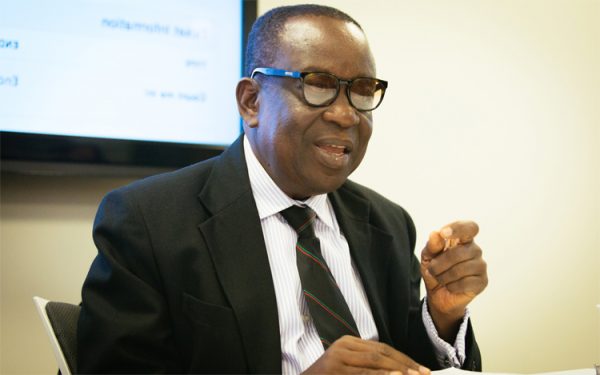Messrs Santa Baron, the company awarded the contract, which is demanding payment, says the previous government awarded a contract to purchase equipment and upgrade the security infrastructure for Ghana.
A report on the project from the Ghana Police Service dated March 2016 indicated that “the National Security Co-ordinator requested details from the Police Administration before sending same to the Interior Ministry for action”.
Yaw Donkor denied knowledge of the contract
However, the immediate-past National Security Co-ordinator, Yaw Donkor, has told the Criminal Investigation Department (CID) of the Ghana Police Service, which is investigating the genuineness or otherwise of the contract, that he had no knowledge or involvement in the said contract.
His denial has further heightened questions about the contract because it would have been expected that a contract that is meant to beef up the security infrastructure of Ghana would not be awarded without the knowledge of the then National Security Co-ordinator.
The Finder found out that the former Deputy Minister of the Interior, James Agalga, signed the contract dated August 2016 on behalf of the Government of Ghana.
When The Finder called him on phone, he admitted signing the contract on behalf of government, saying government did not do anything untoward.
He explained that the intended infrastructure was meant to beef up counter-terrorism efforts of Ghana to protect Ghanaians since the threat of terrorism was real as witnessed in neighbouring countries.
According to him, the counter-terrorism unit under the national security apparatus needed the infrastructure to deal with issues of terrorism, which are still relevant today.
When asked whether it is normal that such a contract was signed without the knowledge of the National Security Co-ordinator, Agalga said since the issue was under investigations, he would not comment on that.
The Finder can report that the contractor, Messrs Santa Baron, is said to have told government that it has placed orders and the equipment are ready to be shipped to Ghana for the project.
Therefore, the company said if government fails to pay the money anytime soon, it would be forced to go to court to secure judgement debt to offset its expenses on the contract.
For now, the CID and government officials familiar with the matter are tight lipped on the details of the contract, such as the duration to deliver the project and terms of payment.
Also, the kind of equipment the contractor claimed to have purchased and ready to be imported into Ghana have not been disclosed.
Gov’t hot over $279.4m contract
- Posted on
- Comment
 -Contractor threatens judgement debt as ex-National Security Co-ordinator denies knowledge of the contract
-Contractor threatens judgement debt as ex-National Security Co-ordinator denies knowledge of the contract
Government is under pressure to pay $279.4 million for a contract signed by the previous government or face judgement debt.
By Elvis DARKO, Accra










 (Selorm) |
(Selorm) |  (Nana Kwesi)
(Nana Kwesi)